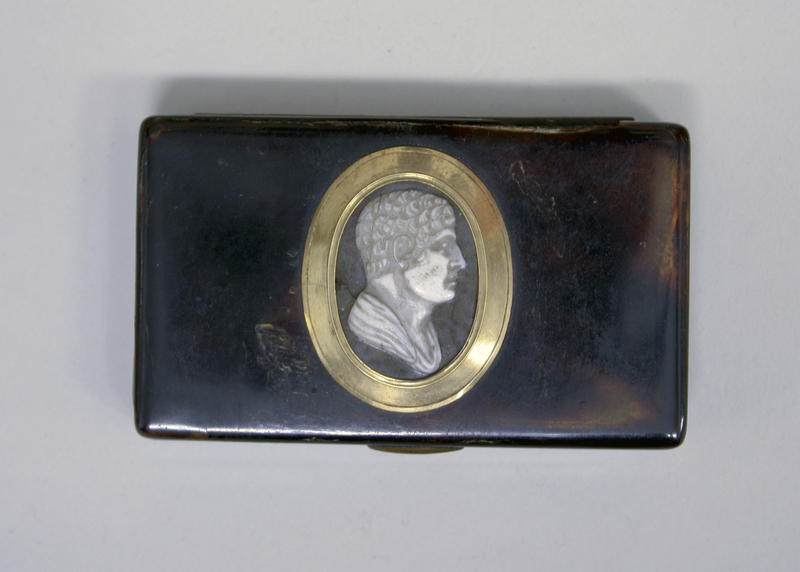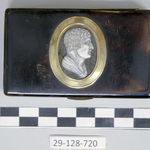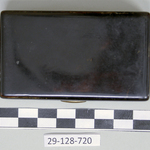| Object Number | 29-128-720 |
| Current Location | Collections Storage |
| Provenience | Mediterranean |
| Section | Mediterranean |
| Materials | Tortoise Shell | Onyx |
| Iconography | Germanicus |
| Description | Sommerville: Onyx, on a Tortoise-shell Box - Germanicus, nephew of Tiberius. Germanicus Caesar, though not emperor, is intimately associated in history with the earliest of the Caesars. Born B.C. 15, he was adopted by his uncle Tiberius while Augustus was still emperor, and was raised at an early age to high honors. He was called "Germanicus" from his brilliant victories over the Germans, and, being a great favorite with the soldiers, was urged by them, on the death of Augustus, A.D. 14, to make himself emperor. But he resisted their importunity, and succeeded in reconciling them to the new emperor, his uncle Tiberius. Tiberius in time became alarmed at the ever-growing power of his nephew in Germany and Gaul, and A.D. 17, after giving him a triumph in Rome, transferred him to the command of the eastern provinces of the Empire. After many successes in Armenia and Egypt, Germanicus died A.D. 19, not without suspicion of having been poisoned. By his wife Agrippina, granddaughter of Augustus, Germanicus had nine children, among whom were the Emperor Caligula and Agrippina, the mother of the Emperor Nero. Germanicus was an author of some repute and wrote several political works. Portions of these still remain, the latest edition being that by Orilli, Zurich, 1831. Greek and Roman Cameos, Case RR. |
| Height | 2 cm |
| Width | 2.1 cm |
| Credit Line | Bequest of Maxwell Sommerville, 1904 |
| Other Number | 720 - Sommerville Gem Number |
Report problems and issues to digitalmedia@pennmuseum.org.





